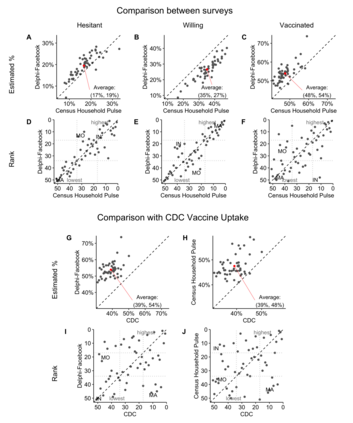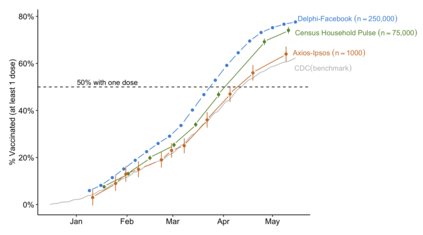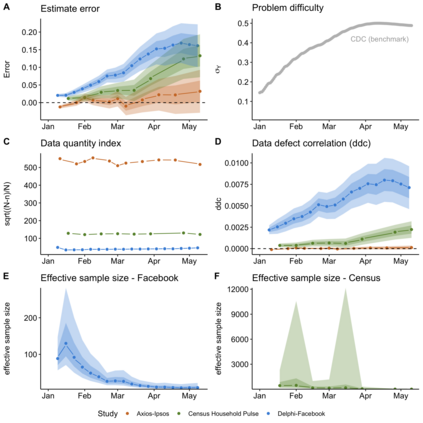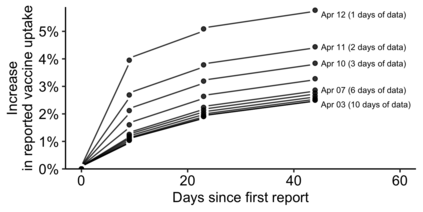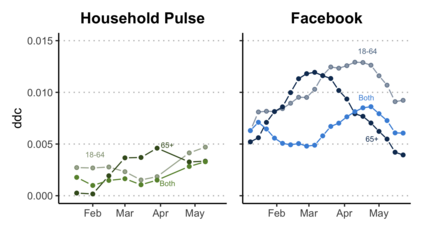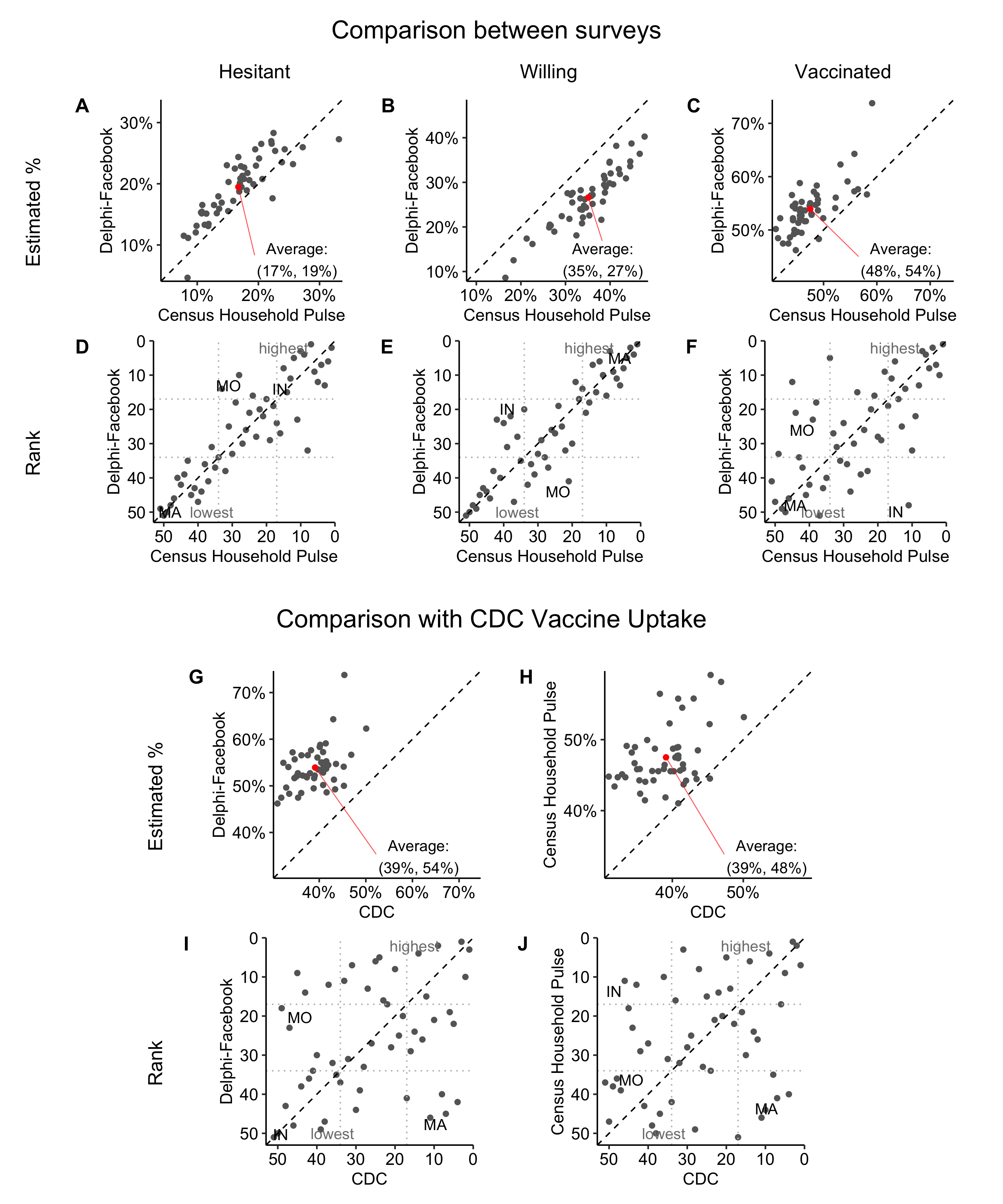Public health efforts to control the COVID-19 pandemic rely on accurate surveys. However, estimates of vaccine uptake in the US from Delphi-Facebook, Census Household Pulse, and Axios-Ipsos surveys exhibit the Big Data Paradox: the larger the survey, the further its estimate from the benchmark provided by the Centers for Disease Control and Prevention (CDC). In April 2021, Delphi-Facebook, the largest survey, overestimated vaccine uptake by 20 percentage points. Discrepancies between estimates of vaccine willingness and hesitancy, which have no benchmarks, also grow over time and cannot be explained through selection bias on traditional demographic variables alone. However, a recent framework on investigating Big Data quality (Meng, Annals of Applied Statistics, 2018) allows us to quantify contributing factors, and to provide a data quality-driven scenario analysis for vaccine willingness and hesitancy.
翻译:控制COVID-19大流行的公共卫生工作取决于准确的调查,然而,Delphi-Facebook、Census Pulse和Axios-Ipsos调查对美国接种疫苗情况的估计显示大数据奇数:调查越大,其估计数就越是根据疾病控制和预防中心(CDC)的基准提出的。 2021年4月,最大的调查Delphi-Facebook高估了20个百分点的疫苗摄取率。 疫苗意愿和偏执(没有基准)的估计数之间的差异也随着时间的增长而增加,不能仅仅通过对传统人口变量的选择偏见来解释。 然而,最近关于调查大数据质量的框架(Meng,Annals of Appical Statistics, 2018)使我们能够量化贡献因素,并提供以数据质量驱动的疫苗意愿和偏重度情景分析。

